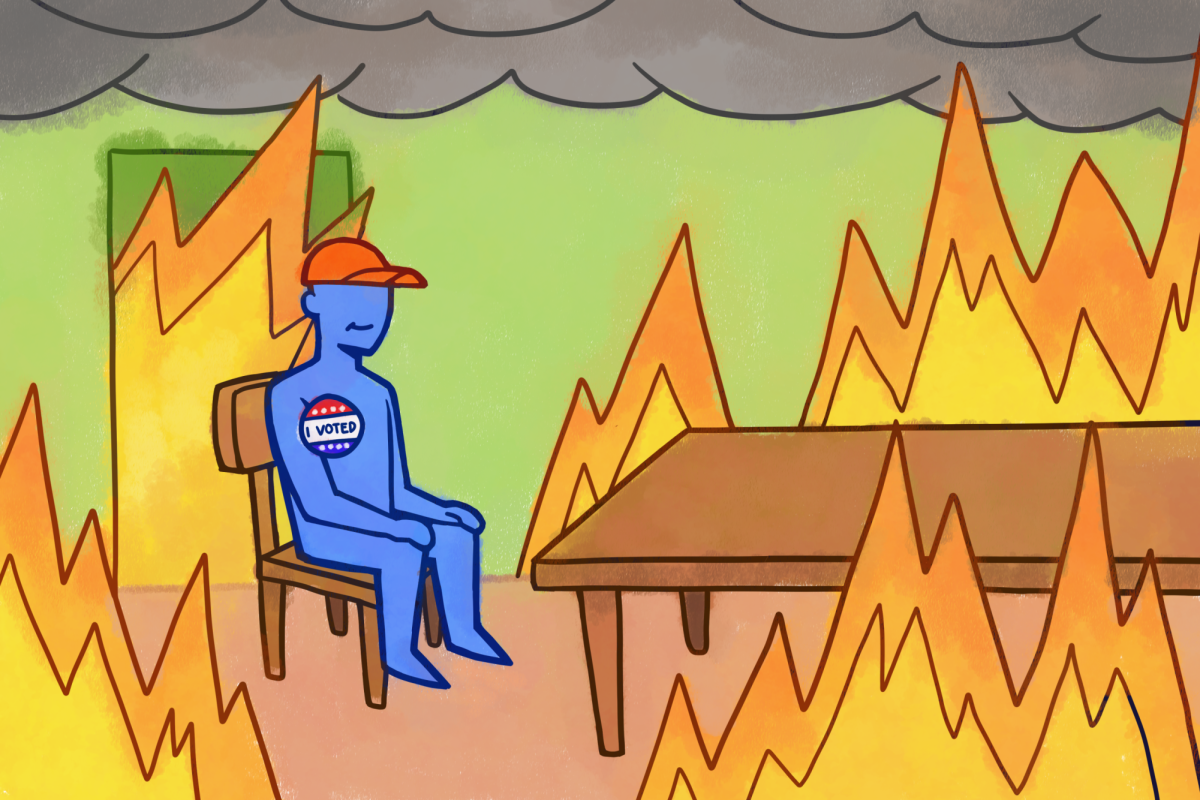Point
When the Internet was created a few decades ago, the scientists involved (not Al Gore) probably didn’t realize the all-encompassing influence it would have a few years down the road. While high-speed Internet access may not rank with water, food and shelter as necessary for survival (though some would argue it should), it has attached itself to almost every aspect of modern society. Supplying high-speed Internet to community groups and low-income areas opens many doors to a wide variety of opportunities. For those of us who have enjoyed this luxury for a long time, we don’t often stop to think about everything the Internet allows us to do. Unfortunately, not everyone has access to this vital commodity, but some in Champaign and Urbana are trying to change that.
The Big Broadband proposal would bring high-speed Internet access to a number of low-income neighborhoods and 137 community buildings throughout our area. Most people are supplied with water, food and shelter already, so adding Internet to that list should be a great step forward. Regrettably, money is once again a hindrance to any sort of progress.
So far, Urbana and the University are on board for Big Broadband, while Champaign is showing reluctance. The federal government is paying for $30 million of the bill through grants, and the state government is paying for a small portion, leaving a few million dollars to be covered locally.
I’m not naive and I know that “money makes the world go ‘round,” but it seems every time a tax dollar has to be spent, there are riots in the street. A taxpayer has the right to know and help choose where his or her money is spent— that’s how democracy works. When their tax dollars go toward something they want, the taxpayer commends the government for its great wisdom. When it goes to help other people in different parts of the community, all of a sudden, the government workers are ignorant for wasting money.
The Internet is vital for children and young adults in education. The number of learning resources that can be utilized is nearly limitless. During college, there are very few projects, papers or presentations that go by without online research. Here on our campus, we can check our homework assignments, register for classes and wait anxiously for our grades all within the confines of the World Wide Web.
Get The Daily Illini in your inbox!
The benefits don’t just stop at our education, but go on further to our careers. Anyone who has been to a career fair or inquired about a job or internship knows that after talking to a company representative, they will probably be referred to an online application. The same thing goes for both undergraduate and graduate school applications.
When you add together an improved education and a more efficient means of finding a job, you have a formula for a better economy. This is the part where everyone wins.
With this program being implemented in many low-income areas, a number of people who were unable to access these great career tools will now have them at their fingertips. This leads to less of a dependence on government aid and a more self-sustaining lifestyle.
Along with individual improvements, the community as a whole can benefit as well. Businesses are more likely to build in areas with high-speed Internet access and the project itself can create jobs. The current plan calls for the creation of almost 50 community Internet facilities that will need to be staffed. For the University student, the project will also need 50 student interns. The University itself can benefit from possible revenues, with CITES acting as customer service.
The Big Broadband project is a great opportunity to improve education, create jobs and move our economy in the right direction. This is a program that will accomplish all of the goals we look for in our country’s current state, but there are still detractors complaining about the costs. Evidently, they still think we should invest in low-cost Job Factories and Money Trees.
Micah Rumsey is a senior in LAS.
Counterpoint
Over winter break, I encountered the problems that come with moving back home for a short spurt of time. “Where do my clothes go now that I no longer have a room?” “Where should I park my car?” “What is there to eat?”
The most pertinent question for me, as a good college student, was “Where can I find Internet?”
Rural living, although awesome, forced me to suffer through the horror of a dial-up Internet connection. Lately, my solution has been to pack up my laptop, drive 30 minutes into town and sit on the ledge of a water fountain in the food court of our mall. I plug my charger into the outlet used for janitorial appliances and steal Wi-Fi from one of the local businesses.
There is no DSL option for my family. We have to tough it out on a connection that takes 15 minutes to connect on a good day and pray that no one sends us e-mails with photos or (gasp!) video. But life is not all about speed.
In February of 2009, along with other provisions of the American Recovery and Reinvestment Act, $7.2 billion was directed specifically for broadband development. Here in our area, Urbana, Champaign and the University of Illinois worked to draft a proposal to apply for some of this stimulus money, $31 million, to help bring high-speed Internet to 137 community-oriented buildings and low-income neighborhoods.
This stimulus will bring high-speed to needy areas, such as youth and women’s centers, libraries and science museums. Unfortunately, not all the money is being covered by the feds. Illinois’ state government is expected to pick up over $3 million and Urbana, Champaign and the University would pay up to $1 million.
As University students know very well, the state is rather behind on making even their most basic payments. Their debts to the University have caused massive repercussions, which have affected faculty, staff and now students. Do we really expect them to make this payment when they are letting universities across this state drown for lack of funds? The other payers in this venture— Urbana, Champaign and the University— are in no better situation. With salary freezes, cuts and budget deficits ahead, they need to be evaluating where the money will all come from.
The main question we need to ask ourselves is if broadband is really that important. Going into debt for a want rather than a need seems like a waste of resources to me. There are several Internet hot spots around this area. The Champaign-Urbana Wireless Internet Program placed hot spots in downtown Urbana in 2006. The University campus and surrounding coffee shops provide many ways for people to easily get online, and there are libraries for those who lack a laptop. I dare say Champaign-Urbana is technologically advanced and this extra expenditure will only take from the pocketbooks of these cities and our University, whose accounts are already dwindling.
If we are willing to spend this much to bring the much-desired high-speed Internet to these organizations, what are we not providing these people and organizations with? The youth and women’s centers and low-income neighborhoods could probably use something a bit more practical. Should high-speed Internet be such a top priority or are there other things more necessary? What does our area really need? The money that will be spent on providing Internet could be used to provide tangible help to low-income neighborhoods. Some things in life are just more important than a great Internet connection.
As one example, the Center for Women in Transition made the list of organizations that would be covered in this broadband coverage. On their Web site, they list some tangible items that they actually need, including ink cartridges, pillows, toilet paper, bras, Play-Doh, blankets and juice boxes. Personally, I would rather spend even just the $1 million that Champaign, Urbana and the University are putting forth on tangible necessities rather than a high-speed connection which people will still have to pay for.
Colleen Lindsay is a graduate student









